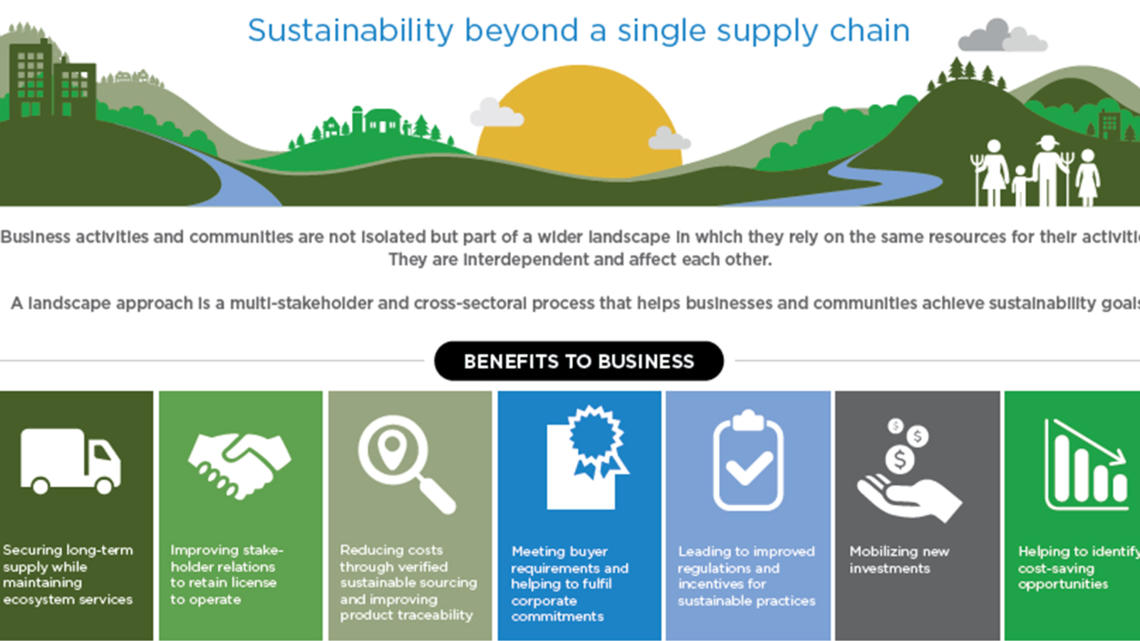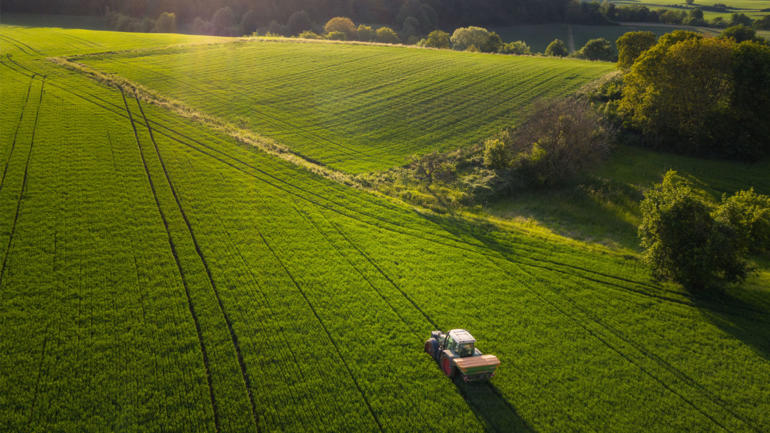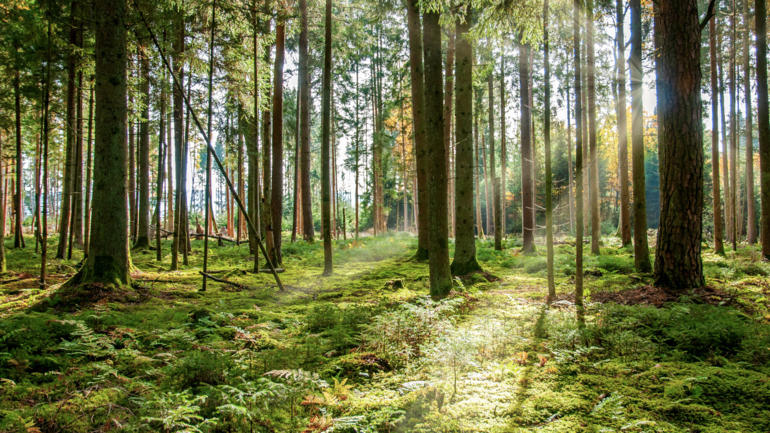What is a landscape approach?
As businesses learn more about their supply chains, we see that sustainability does not stop at the fences of individual production and extraction sites (e.g. farms, concessions, dams or quarries). Instead, impacts and dependencies cross property lines to include the entire landscapes, presenting issues that challenge a diverse mix of stakeholders.
Risks such as water scarcity, land degradation, competition for natural resources, energy, and climate change affect entire regions - impairing business and societal activities beyond single units or users.
Because of this, we need collective approaches and solutions. We need to work together to manage entire landscapes properly – hence, the "landscape" approach.
Why pursue landscape approaches?
Addressing sustainability challenges through a landscape approach involves reconciling competing land use interests and working towards common ground. It offers a process for achieving diverse sustainability objectives for various stakeholders.
For example, industrial or commercial land used for agriculture, forestry, mining or energy and human settlements can overlap or compete in any given landscape. In these instances, all parties rely on the same natural resources for success and their respective activities affect everyone around them.
In other words, all stakeholders have the incentive to manage shared land effectively. These would be the perfect candidates for a landscape approach.
What's the best way to implement a landscape approach?
As businesses look to fulfill their broader sustainability goals, stakeholders from all sides are collaborating to manage land together. With a suite of tools, mechanisms and approaches, integrated land management systems are becoming more attractive to businesses who need to hedge multiple risks while harnessing new opportunities.
Which is exactly why WBCSD, IDH - the Sustainable Trade Initiative, The Forests Dialogue and Sustainable Food Lab joined forces to build a collaborative 'Business Learning Hub on Landscapes' - a new platform designed to foster collaboration by sharing success stories - helping business learn from diverse experiences as they transform corporate supply chain initiatives into impactful landscape solutions.
With this new infographic you can see why landscape approaches make great business sense. Contact us for more details!








